
September 2019 Issue Highlights
For more complete coverage, send us an e-mail to
request a back
issue.

For more complete coverage, send us an e-mail to
request a back
issue.
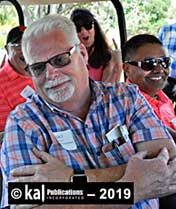


Northern California Petroleum Industry Golf and Tennis Invitational
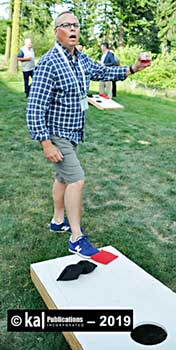

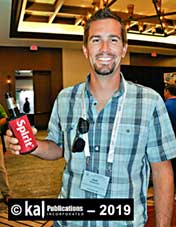
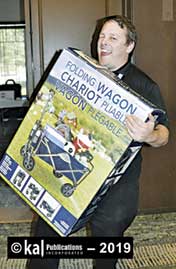
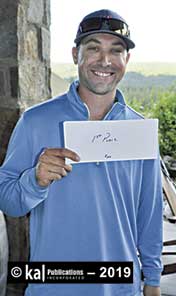
Washington Oil Marketers Association Convention
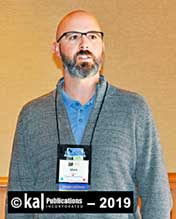
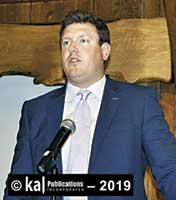
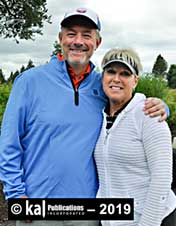

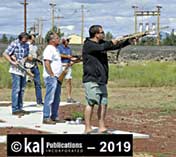
Oregon Fuels Association Convention
Want to see the photos that didn't make the issue? Check out the Cutting Room Floor.
PBF Energy to Acquire Shell Martinez
Refinery
Zips Car Wash Acquires 7 Champion Express
Sites
California Approves B20 in USTs
Commercial Drivers Can't Use CBD and
THC
Chevron to Add EV Chargers to Stations
PARSIPPANY, NJ. — PBF Energy has expanded their presence in the West, announcing that they will be acquiring the 157,000 barrel-per-day Martinez refinery from Equilon Enterprises, doing business as Shell Oil Products US. The purchase price for the refinery — and its related logistics assets — it estimated to be between $900 million and $1 billion.
Included in the purchase price are the refinery and its 860-acre site in the City of Martinez, a deep-water marine facility, inventory, product distribution terminals and refinery crude and product storage facilities with approximately 8.8 million barrels of shell capacity.
PBF will continue to supply the Shell-branded businesses in the area with fuel and other refined products.
PBF and Shell have also agreed to work together to see if idled equipment at the Martinez refinery could be used to create a renewable diesel fuel production facility.
"The Martinez acquisition is too compelling for us to pass up," explained PBF CEO Tom Nimbley. "We are buying a world-class asset at a fair price and an opportune time."
Nimbley noted the acquisition of the refinery "is a significant strategic step for PBF as we expand our West Coast operations and increase our total throughput capacity to more than one million barrels per day." He added, "We look forward to welcoming Martinez's highly-motivated and professional workforce to the PBF family, and are committed to continuing their tradition of safe, reliable, environmentally responsible operations, as well as their outstanding community partnership."
Shell Downstream Director John Abbott said the company decided to sell the Martinez refinery as part of its plan to "reshape efforts toward a smaller, smarter refining portfolio." He added, "This deal is another step in our transformation."
PBF acquired the ExxonMobil refinery in Torrance in Southern California in 2016; that refinery has the capacity of 155,000 barrels per day. With the addition for the Martinez refinery and its capacity of 157,000 barrels per day, PBF is poised to become one of the largest suppliers of refined products in California and the West.
PBF currently operates refineries in California, Delaware, Louisiana, New Jersey and Ohio.
The sale of the Northern California refinery is expected to close "in the second half of 2019, subject to customary closing conditions and regulatory approvals."
LITTLE ROCK, AR. — Zips Car Wash has acquired seven locations from Champion Xpress Car Wash in New Mexico and Texas. The purchase price for the car washes was not disclosed.
Included in the sale were carwashes in Roswell and Clovis, New Mexico as well as Plainview and San Angelo, Texas.
"We're excited to bring these high-quality, successful operations into the Zips family and to begin to offer our unique culture of car washing to customers in West Texas and New Mexico," said Katie Sargent, Regional Manager, Zips Car Wash, announcing the acquisition.
She added, "As we grow, we're gaining a better understanding of the different customers we serve — from once-a-year car wash consumers to bi-weekly customers."
Zips Car Wash operates 178 locations in 17 states, primarily in the South and Midwest. The New Mexico locations are Zips' first holdings in the 13 Western states.
SACRAMENTO, CA. — The State of California has modified its regulations to allow the storage of B20 biodiesel in underground storage tanks.
The California State Water Resources Control Board amended the state UST regulations on August 6. The regulations now say that diesel containing up to B20, meeting the ASTM standard for B20 (D7467), "shall be recognized as equivalent to diesel for the purpose of complying with existing approval requirements for double-walled USTs, unless any material or component of the UST system has been determined to not be compatible with B20."
The language reverses the previous wording of the regulation, which in effect required tank owners to prove that every component of the tank was compatible.
The National Biodiesel Board, which has been working on the issue for over 10 years, said the amended regulation will allow double-walled UST owners and operators to store B20 legally in California.
"This is a major victory towards biodiesel's mainstream integration into the California fuel supply," said NBB CEO Donnell Rehagen. "We recognize the huge potential for biodiesel to supply California with a better and cleaner fuel and applaud state regulators for working closely with us to clear this final hurdle that will allow for more low-carbon biodiesel to make its way to the consumers and fleets all across the state."
The California Fuels & Convenience Alliance, which has been working on the issue stated, "California's UST regulations have previously prevented the growth of higher biodiesel blends but will now reap the environmental benefits of lower carbon fuels sold by CFCA members. B20 is an important tool for California to meet the state's aggressive climate change goals and CFCA members have driven the success of low carbon liquid fuels and programs such as the Low Carbon Fuel Standard."
CFCA officials added, "The efforts of CFCA's government relations teams, member participation at our Day at the Capitol events, and countless meetings with regulatory agencies, the fuels and convenience industry have led to a huge success."
California was the last state to accept storage of B20 in underground fuel systems.
It is expected the regulation will go into effect October 1.
WASHINGTON, D.C. — Despite recent state actions legalizing the use of THC and CBD, the U. S. Department of Transportation (DOT) recently clarified the agency's drug and alcohol policy, confirming that commercial drivers may not use the products.
According to the DOT, the use "of THC is forbidden for a regulated driver, no matter the source. As a result, medical and recreational marijuana and CBD oils, even if legal under state law, are banned under federal law."
In making its ruling, the DOT noted that CBD oil and marijuans contain THC, which remains a banned Schedule 1 substance in Federal regulations and "drug testing regulations do not authorize the use of Schedule 1 drugs for any reason."
If a driver fails a drug test because of THC, companies are required to remove the driver "from safety-sensitive functions," have the driver evaluated by a substance abuse professional, complete drug rehabilitation treatment, and pass follow-up drug tests.
In addition, the DOT specifically noted that using "medical marijuana," even if prescribed by a doctor, would not allow a commercial driver to get an exemption from passing the test.
"A driver's career may be in jeopardy if a drug screen comes back positive," noted the DOT. "Trace amounts of THC from CBD oils or marijuana may show up in a DOT urine specimen for many days after use." They also noted that "Enforcement authorities may consider CBD oil in a commercial vehicle as possession. Officers are unable to determine the concentration of THC in the oil, and there has been no official guidance for them to follow."
SAN RAMON, CA. — Chevron has announced that they are partnering with eEVgo to add fast chargers for electric vehicles to five company operated Chevron gasoline stations in California.
More than a dozen EVgo fast chargers, with capacity ranging from 50 kW to 100 kW, are currently under construction or already operational at Chevron stations in Los Angeles and San Francisco Bay Area communities, including Aliso Viejo, Manhattan Beach, Menlo Park and Venice, CA.
"We are excited to be working with EVgo to install electric vehicle charging stations at select locations in California," said Alice Flesher of Chevron. "While gasoline and diesel remain an important part of California's transportation energy mix, we are always exploring how to evolve our offering."
"We believe the future of transportation is electric, and EVgo is helping everyone — including traditional fueling stations — take advantage of the benefits of EV adoption," said Cathy Zoi, CEO of EVgo. "EVgo is excited to work with Chevron to bring fast-charging to gas stations today and applauds the company's forward-thinking efforts to serve the rapidly growing market of electric vehicle drivers in California."
Originally published in the September 2019 issue of O&A
Marketing
News.
Copyright 2019 by KAL Publications Inc.
Serving the 13 Western States, the World's Largest Gasoline, Oil, Fuel, TBA and Automotive Service Market